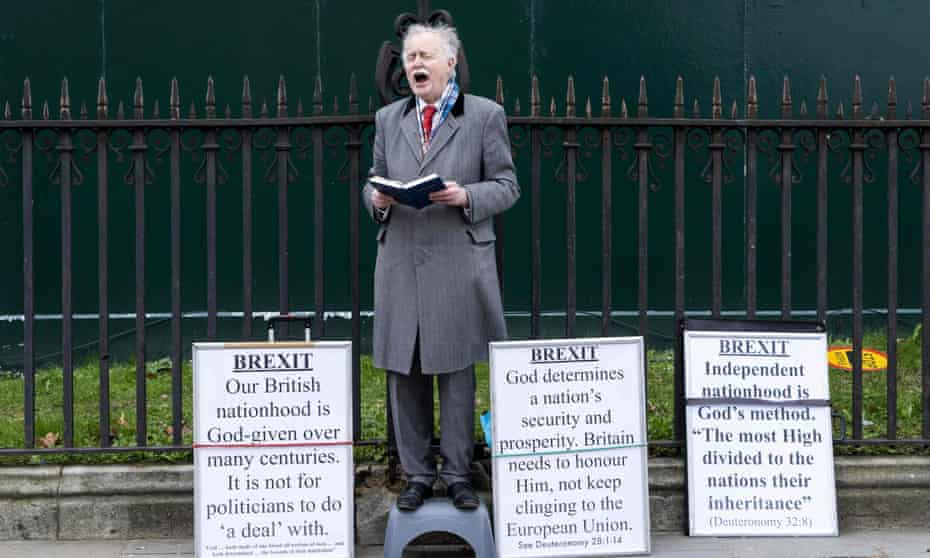Parliament 'divorced from reality', EU's deputy Brexit negotiator tells ambassadors
The EU’s deputy
Brexit negotiator
Sabine Weyand has said MPs’ decision to resurrect plans already rejected by Brussels countless times shows that parliament is “divorced from reality”.
Speaking at a closed-door meeting of EU ambassadors this morning, Weyand made the tart observation about the
Malthouse compromise - a variant of plans rejected by Brussels numerous times.
Quoting private remarks by the Dutch prime minister, Mark Rutte, Weyand also said the decision to vote for no-deal was “like the Titanic voting for the iceberg to get out of the way”.
Officials have voiced astonishment that
Theresa May is allowing a free vote on no-deal, rather than seeking to defend the Brexit agreement painstakingly negotiated with the EU over 20 months. One senior source told the Guardian the decision to hold a free vote was “incredible”.
Weyand, an architect of the Strasbourg assurances hammered out on Monday, said that the second historic defeat for May’s deal showed that “a short technical extension” of talks could now be ruled out.
But EU member states do not share this view. France and Germany are among several countries who want to see flexibility, although they share concerns about a long-drawn-out Brexit distracting the EU when it has numerous economic and foreign policy questions jostling for attention.
The ambassadors concluded that the highly political question of extending Brexit talks could only be decided by EU leaders, who will assess the question at a summit next Thursday (21 March). Insiders expect the decision will be taken on Thursday by leaders, rather than pre-cooked in advance by their officials.
If MPs vote for an extension on Thursday, a critical period of diplomacy will begin. Donald Tusk, the president of the European council, will meet the Dutch prime minister Mark Rutte on Friday, Angela Merkel and Emmanuel Macron on Monday, Leo Varadkar on Tuesday.
While various extension times have been mooted - from five weeks to 21 months - there has never been a default position. Insiders stress the decision will depend on what the UK asks for.
But there is growing impatience with the UK - one ambassador asked why the EU had to assess complicated scenarios, when the British government could
revoke article 50.
Many EU diplomats and officials think a short extension - two to three months - would be pointless, while not lessening the distraction of Brexit. “The shorter the extension, the more likely it is going to stay on the European agenda,” said one diplomat, from a country that favours a flexible approach.
But others are talking tough, while the debate in parliament has not enhanced confidence in the British political system.
“The damage is done. We know they are still putting party before country and humouring people who believe in fairies,” said one source, referring to the revived Malthouse compromise. “There was a feeling ‘wouldn’t it be better to have a dose of no deal to bring some sanity to the debate?’”
But there is also wariness of no-deal Brexit and several ambassadors refused to accept a commission proposal that a second extension would be ruled out.


